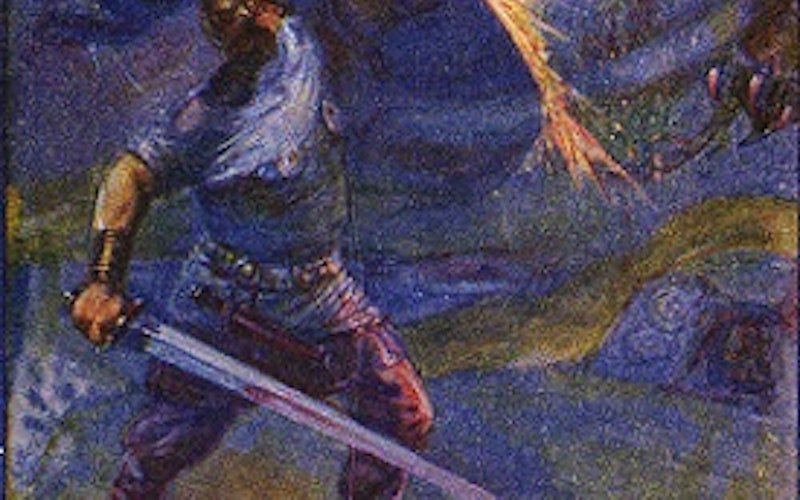
Culture At Large
Beowulf and heroic heritage
I am puzzled at how those who call this a Christian nation do not want our troops to come home from Afghanistan or Iraq. I am puzzled by the fact that my father applauds one of his preacher friends who ascends to the pulpit dressed in the character of Patrick Henry and reenacts his famous speech, ending with a booming, “Give me liberty or give me death.”
How is it that we have come to see this fighting spirit as part of our Christian heritage? Where does it come from?
Not Jesus.
As Tolstoy rightly observes, when Jesus says to turn the other cheek, he is calling for a radically different way of facing the enemy. As a matter of fact, taking up arms - even to defend your freedom - doesn’t appear to be anywhere on Jesus’ list of priorities. Though not Christian, Gandhi managed to use this principle to drive the British out of India. Martin Luther King Jr. did the same in the American South.
The problem with this approach to the enemy, to turning the other cheek, is that it hurts. It hurts and it feels not only like defeat, but like a shameful admission of weakness. But is this not what Jesus says Christians must not do? Do not strike back, he says. If they take your coat, give them your shirt also. Is Nietzsche right when he sneers at the Christian soldier rattling his sword and says the only person who has the right to call himself a Christian is one who behaves as the Galilean did?
Every year at this time I teach the Old English epic poem "Beowulf."I like the story of Beowulf and Grendel and the story of Beowulf and the dragon. I find the seemingly unrelated stories of the blood feuds that swirl among the Swedes and Frisians and Franks and Danes and Geats a fascinating look into that brutal and bloody world. More than that I think what I love is the glimpse I get into the Anglo-Saxon culture of the poet as Christianity moves in and mixes with - to eventually overtake - the pagan beliefs of the time.
The poet appears Christian. He bemoans the “pagan shrines,” where the Geats and the Danes “vowed offerings to idols,” but insists, “That was their way … The Almighty Judge of good deeds and bad, the Lord God … was unknown to them.”
His Christianity is mixed with the old beliefs however. He writes that Grendel is of “Cain’s clan, whom the Creator had outlawed and condemned as outcasts…” and goes on to explain that “out of the curse of his exile there sprang ogres and elves and evil phantoms, and giants who strove with God...”
We might chuckle at that, as a belief from the so-called dark ages, one we have left behind. But what about the poet’s sympathy for the heroic way of life? When asked why he thinks he can kill the monster, Beowulf brags of rising from battle boltered (a great Northern Irish term which means clotted and sticky) in the blood of his enemies. The poet approves. But he also seems to sense that this warrior life is the very thing Christianity has arrived to destroy.
But did Christianity destroy that old way of life, or did it absorb it? After all, Christians in my hometown are putting snake flags on their cars, declaring, “Don’t Tread On Me.”
The fighting spirit goes way back. It is without a doubt part of Northern Europe's - and hence much of America's - illustrious heritage. It just isn’t the part that comes from Christ.
(Illustration from "Stories of Beowulf" courtesy of Wikimedia Commons.)
Topics: Culture At Large, Arts & Leisure, Books, Theology & The Church, Faith, Theology, News & Politics, History